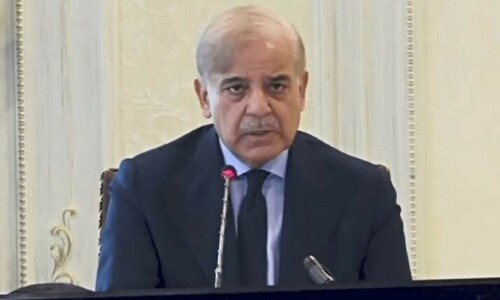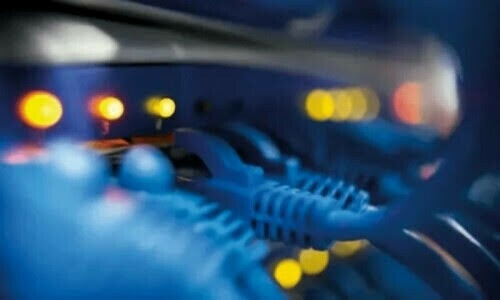KOSOVSKA MITROVICA: Unlike politicians still at loggerheads over Kosovo, the Balkan territory’s Albanian and Serbian criminal gangs have found common ground – running a fuel smuggling network.
One of the immediate consequences of Kosovo’s secession from Serbia in February was the end to customs checkpoints in the breakaway province’s north, which were burnt down by angry Serbs opposed to independence.
This disabled the control that Kosovo authorities and the United Nations mission there had over the flow of goods on the Kosovo-Serbia border.
Criminal groups quickly stepped into the vacuum, notably smuggling in petrol – and bypassing duties meant for Kosovo – which has proved not only lucrative but welcome.
“Fuel prices, without taxes, have since been 30 per cent cheaper in the north than in the rest of Kosovo,” said Musa Mustafa, a journalist based in the northern part of the territory where such trafficking is booming.
And “the new reality, without customs and taxes, has became a golden opportunity for the mafia to jump in with fuel smuggling from Serbia to the north and deeper into Kosovo,” he said.
Authorities in the Kosovo capital of Pristina estimate that fuel smuggling has cost the new state more than 10 million euros (12.7 million dollars) since February.
The key centre for black-marketeering has become the ethnically divided northern town of Mitrovica, already described by Western security officials as the Balkans’ worst hotspot.
Split by the Ibar river into a Serb-populated north and Albanian south, Mitrovica bears little resemblance to a “Wild West” town, but the lack of customs controls has created a wide price disparity on its makeshift street stalls.
Petrol, already a favourite for many gangsters-turned-businessman, has topped the list of illegal trade.
It is believed the main strings are being pulled by two crime bosses in the northern part of the town, and four in the Albanian-populated area.
But even ordinary Albanians, burdened by high prices and low incomes, pour into Serb parts of Mitrovica to fill their tanks, regardless of ethnic hostilities.
“If someone told me that, after independence, I would go to the north to fill my car with cheaper petrol, I would not believe it,” said one of them, Skender Zeneli, a 29-year-old grocery shop owner.
“But there is no one who owns a vehicle in southern Mitrovica who does not buy gas in the north,” he said.
The rush for cheaper fuel has prompted a flurry of activity, its buyers piling up an assortment of containers to transport the duty-free petrol along winding, muddy village roads in order to avoid police and customs patrols.
Idriz Hyseni, the customs officer in charge of the north, said he is often amazed by the resourcefulness of those involved in the illegal trade.
“They put additional tanks in vehicles, and during my years on the job I have never seen anything like it,” Hyseni said, pointing to hundreds of seized vehicles in southern Mitrovica’s customs terminal.
One of the trucks had an unusually huge tank hidden below tonnes of sand, another had its trailer turned into a fuel storage compartment, while a car owner replaced a back seat with a tank.
“Smugglers use old, worthless or even stolen cars on purpose, as they do not lose much if they get caught,” said Hyseni.
Adriatik Stavileci of the Kosovo Customs Service said mobile patrols are a necessity as officers cannot be sent to the torched border posts.
“Their goal is to prevent the transportation of fuel from the north to the south,” farther into Kosovo, he said.
However, Dragan, a 62-year-old Serb, said such a situation was “harmful” for both sides and accused politicians of lacking the will to stop it.
“The highest profit goes to the traffickers, but also to those in power, since such business cannot run without the help and cooperation of the authorities,” he said.
In northern Kosovo, there is a parallel economy in which the law is ignored in both Kosovo and Serbia, said Flamur Keqa of the Kosovo Chamber of Commerce.
Many here accuse Serbia of turning a blind eye to the fuel smuggling in order to help the position of Serbs disillusioned since the independence of Kosovo.
But Oliver Ivanovic, Serbia’s state secretary for Kosovo, has announced tough measures against petrol traffickers, complaining the problem has cost his country a total of 50 million dollars though he did not specify over how long.
Mustafa however said the fuel-smuggling has shown that even foes can cooperate perfectly, if they have mutual financial interests.
“They have achieved ethnic harmony with this crime, which politicians can only dream of,” he said.
Keqa himself said politicians on both sides might learn a lesson from the fuel smugglers in their unsuccessful efforts to agree on Kosovo’s status.
“It’s a bad example, but it sends a good message: people can cooperate.
It’s up to the politicians” to follow suit, he said.—AFP















































Dear visitor, the comments section is undergoing an overhaul and will return soon.